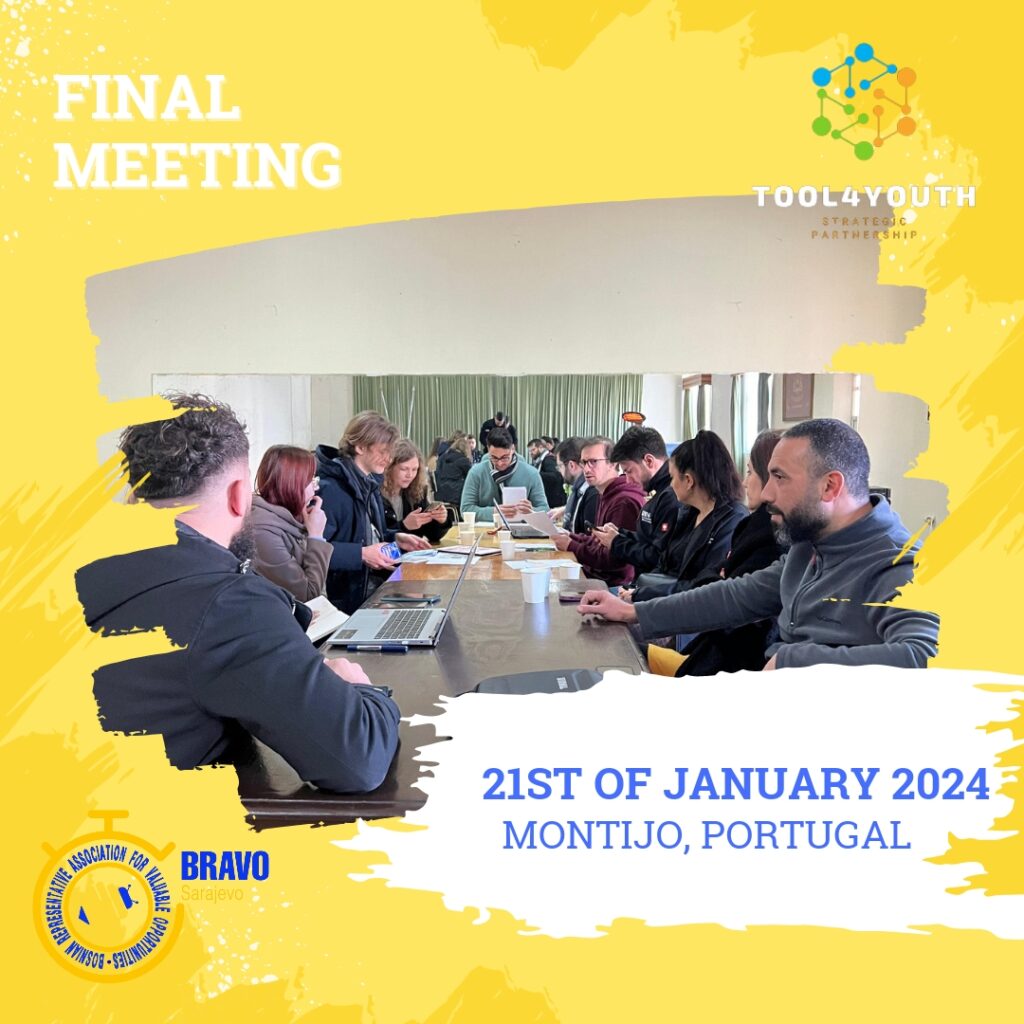
On January 21st, in Montijo, Portugal, a conclusive gathering took place for the “TOOL4YOUTH” project. This assembly encompassed a comprehensive assessment of the project, including its various activities, an evaluation of the tangible outcomes, dissemination strategies and the compilation of a final report.
The venue, strategically located in downtown Montijo, provided a captivating backdrop for the deliberations, affording the project collaborators an opportunity to immerse themselves in the panoramic views while reflecting upon the accomplishments.
This event encapsulated the essence of the deliberations, crystallizing the achievements, lessons learned and future recommendations. The final meeting in Montijo stands as a testament to the collaborative spirit that fueled the “TOOL4YOUTH” project and its enduring impact on the realms of youth development and empowerment.
WAITING LIST
Coronavirus disease (COVID -19) is the first pandemic in history to use technology and social media on a large scale to keep people safe, informed, productive, and connected. At the same time, the technology we rely on to stay connected and informed is enabling and amplifying an infodemic that continues to undermine the global response and compromise pandemic control measures. An infodemic is an overabundance of information, both online and offline. It is a deliberate attempt to spread false information in order to undermine the public health response and promote alternative agendas by groups or individuals.
Misinformation and disinformation can harm people’s physical and mental health, increase stigma, jeopardize valuable health gains, and lead to poor adherence to public health interventions, reducing their effectiveness and jeopardizing countries’ ability to stop the pandemic. Misinformation costs lives. Without the necessary confidence and the right information, diagnostic tests will go unused, vaccination campaigns (or campaigns to promote effective vaccines) will not achieve their goals, and the virus will continue to spread. Moreover, disinformation polarizes public debate on issues related to COVID -19, amplifies hate speech, increases the risk of conflict, violence and human rights abuses, and threatens the long-term prospects for promoting democracy, human rights and social cohesion. The digital age has made it easy for anyone to create media. We don’t always know who created something, why they made it, and whether it’s credible. This makes media literacy tricky to learn and teach. Nonetheless, media literacy is an essential skill in the digital age.
Our most related priority is to promote media literacy and to raise awareness about the false information that is present on a daily basis around the world. We believe that working with youth and youth workers we will take great attention to this issue to the wider community. As we need to make awareness of this global issue.
The main objectives are:
-to increase awareness on what news are fake, and which resources are not trustworthy
-to create a common consciousness to change the societies habits on believing in everything they hear or read
-to promote EU funding projects to the wider community.
-to raise awareness of youth education and its deep effects at local, national and international levels.
-to enhance media literacy skills of youth
-to improve design thinking, creativity, adaptability, resilience, and even empathy.
-to develop communication, teamwork, digital literacy, analyzing, and research skills.
-to create innovative ideas, questioning and problem-solving skills.
-to reach 2000 people with our project and make awareness in the wider community.
-to hand in our production result e-toolkit – comic strip to 1000 people.
-to reach 100 people with Multiplier events
More about BRAVO you can see on our video below:
